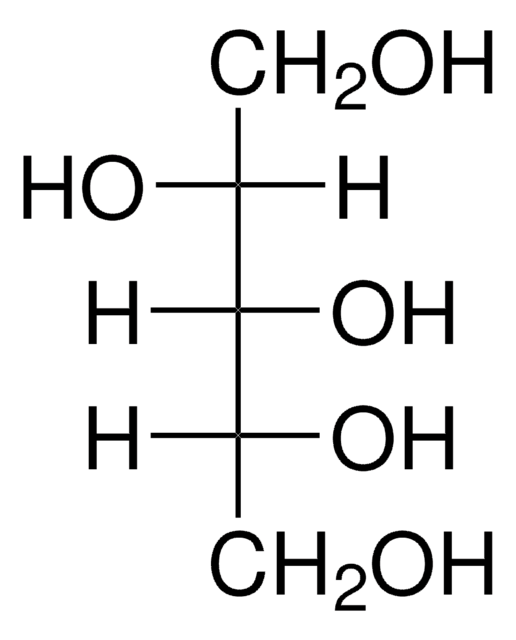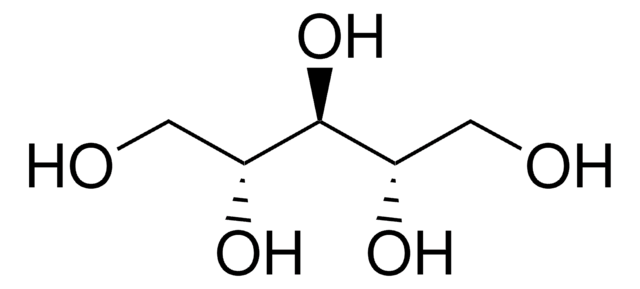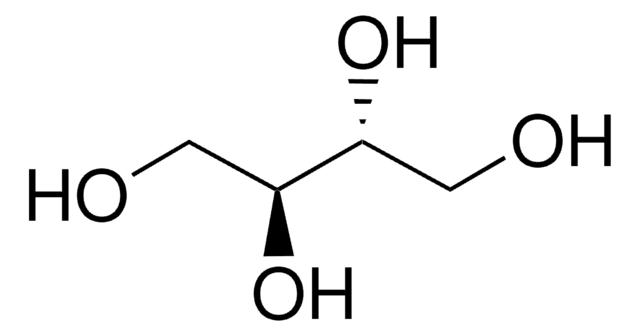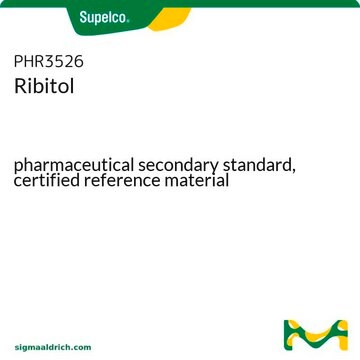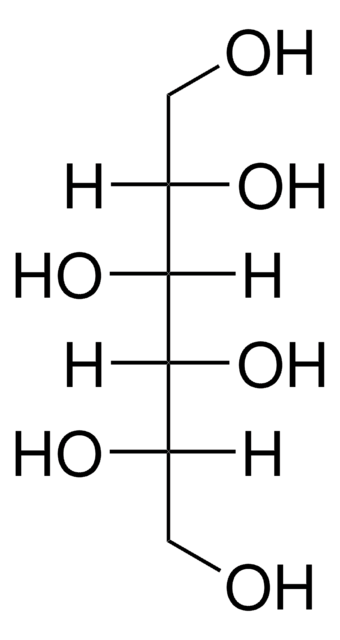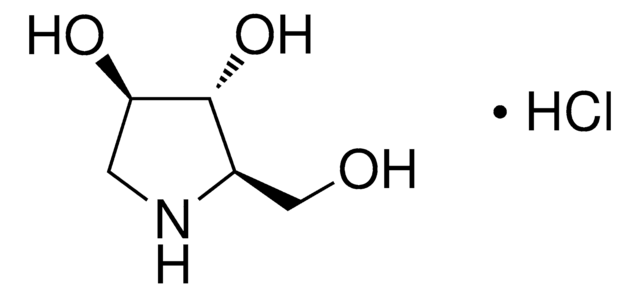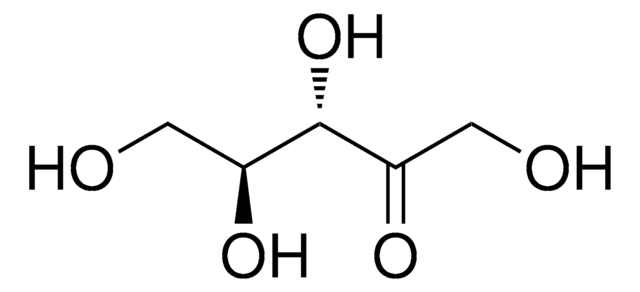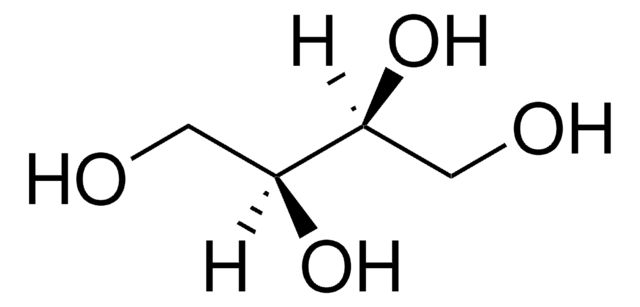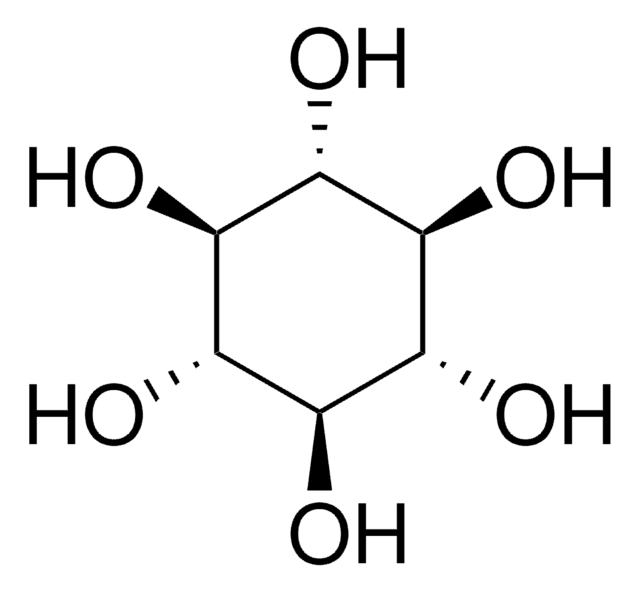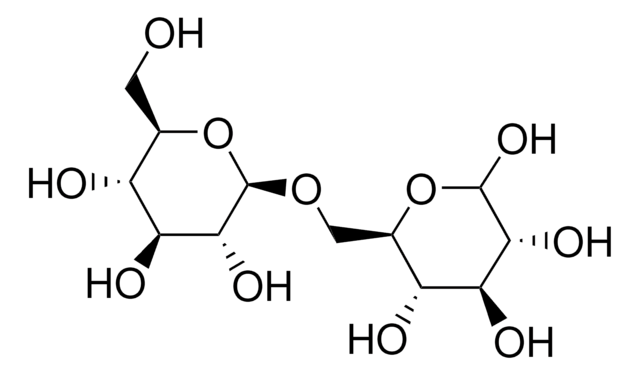A3506
L-(−)-Arabitol
≥98% (GC)
Synonym(s):
L-Arabinitol
Select a Size
Select a Size
About This Item
Recommended Products
Quality Level
Assay
≥98% (GC)
form
powder
color
white
mp
101-104 °C (lit.)
solubility
water: 50 mg/mL, clear, colorless
SMILES string
OC[C@H](O)C(O)[C@@H](O)CO
InChI
1S/C5H12O5/c6-1-3(8)5(10)4(9)2-7/h3-10H,1-2H2/t3-,4-/m0/s1
InChI key
HEBKCHPVOIAQTA-IMJSIDKUSA-N
Looking for similar products? Visit Product Comparison Guide
Application
Other Notes
Storage Class Code
11 - Combustible Solids
WGK
WGK 3
Flash Point(F)
Not applicable
Flash Point(C)
Not applicable
Personal Protective Equipment
Choose from one of the most recent versions:
Already Own This Product?
Find documentation for the products that you have recently purchased in the Document Library.
Customers Also Viewed
Our team of scientists has experience in all areas of research including Life Science, Material Science, Chemical Synthesis, Chromatography, Analytical and many others.
Contact Technical Service